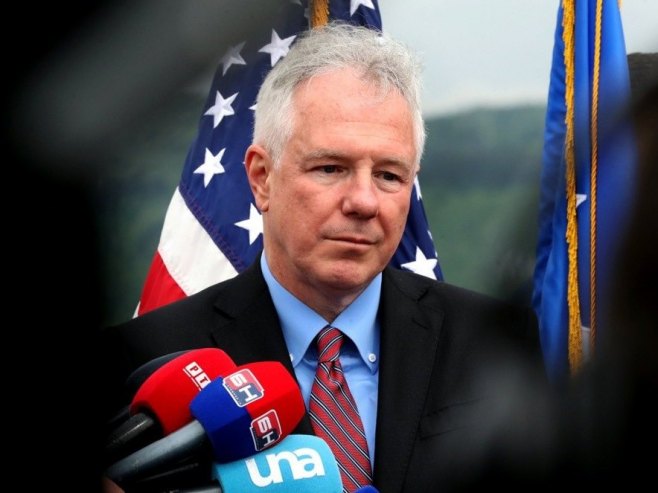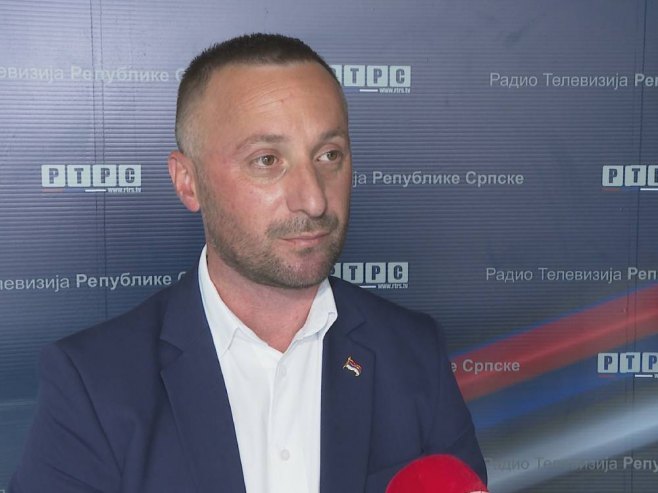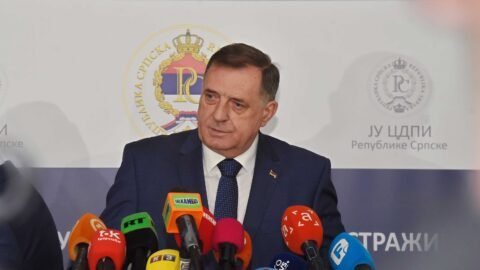Former U.S. Ambassador Michael Murphy continues to stir tensions in Bosnia and Herzegovina even after leaving Sarajevo. In a recent op-ed published by the Sarajevo-based Oslobođenje, Murphy criticized the leadership of Republika Srpska and once again accused President Milorad Dodik of pursuing a separatist agenda. The response from Srpska was swift: BiH finds itself in its current crisis precisely because of Murphy and others like him, who used their political influence to undermine Republika Srpska.
Three months after departing from Sarajevo International Airport, Murphy appears to have returned to familiar habits. Without any diplomatic mandate or official political role—neither in the U.S. nor in BiH—Murphy once again targeted Republika Srpska. Styling himself as a supreme interpreter of the political situation in BiH, he claimed that the country is facing its greatest crisis since the Dayton Peace Agreement, blaming the leadership of Srpska for the turmoil.
“For nearly twenty years, Mr. Dodik has led a campaign to undermine the Dayton Peace Agreement and the state of BiH. He persistently weakens the state, obstructs its functioning and denies it resources, then cites its dysfunction—which he caused—as justification for his agenda,” Murphy wrote.
Murphy went further, asserting that the ruling coalition in Republika Srpska is trying to dismantle Dayton and partition BiH. He referenced so-called legal absurdities—despite having championed one of the most absurd legal processes: the case against the President of Republika Srpska for performing his constitutional duties.
Željko Budimir, Minister for Scientific and Technological Development and Higher Education of Republika Srpska, responded by stating that Murphy was the instigator behind many destabilizing actions.
“Murphy stood behind many steps taken by the Bosniak side. He pushed the judiciary into initiating proceedings against the President of Republika Srpska. He essentially forced certain leaders in the Federation to take a hostile stance toward Srpska, and now he has the audacity to claim that the blame lies with Srpska and its leadership,” Budimir emphasized.
The key question now is: how much influence does Murphy still wield in BiH, months after leaving his ambassadorial post? For Aleksandar Vranješ, BiH’s ambassador to Serbia, one thing is certain—Murphy will be remembered as the “gravedigger of BiH.”
Vranješ argues that Murphy’s recent comments—made in the context of the 30th anniversary of the Dayton Agreement and the importance of preserving constitutional BiH—are merely attempts to whitewash his own harmful legacy during his tenure.
“In doing so, he’s trying to distance himself from responsibility, to shift the blame onto Republika Srpska, and avoid being seen as the person who may have brought BiH to its most dangerous moment since its inception as a state union,” said Vranješ.
What also caught public attention was Murphy’s assertion that “there are brave Serbs who care about Republika Srpska within BiH and who are ready to play a constructive role in the country’s politics.” The question arises—alongside the illegitimate High Representative Christian Schmidt, is Murphy attempting to become a co-architect of new political majorities, and to reshape the electoral will of the people?
Source: RTRS









